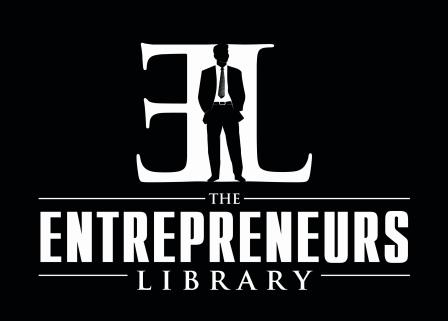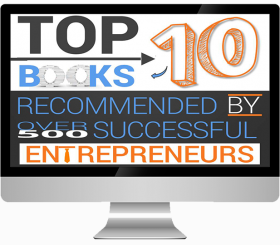TEL 253: How On Earth with DONNIE MACLURCAN

A summary of things you should know about How On Earth according to DONNIE MACLURCAN
Introduction (0:51)
I’m an Australian who moved to the west coast of the US a couple of years ago. I have a background that expands over a few different fields. I worked as an exercise physiologist for about 8 years, as a sports coach for about 15 years, and then I went on to get a PhD looking at the impacts of nano technology. This got me interested in the issues of international equality and economics and the intersects of those. During my time with my PhD I set up a company that helped people to start, scale, and sustain their not for profit initiatives. This is where the intersection of my work in economics and having established the post growth institute several years before came together. I then intersected my work in social innovation in Australia and my economics work and looked at how those two things came together in designing new economic systems.
The Book’s Unique Quality (3:45)
Typically we’ve found that books that explore economy beyond growth or beyond capitalism fall into a number of common traps. They either present a world of utopia and say that this is how the world should be but they’re really vague on the steps that should be taken to get there or they’ll put out something that looks similar to state socialism and therefore turns a lot of people off. What we do is present a model that is based on existing trends in the global economy and that is the rise of not for profits. What we do is look at a model that is already in movement but we believe there is a tendency that these companies are out performing the equivalent for profit businesses, indicating that we are heading for a not for profit world. We are hoping that this book expands on this in a way that gives people the agency for how they can contribute to this trend.
The Best Way To Engage (5:15)
I think we have designed this to be read front to back or for someone to cherry pick. We designed a nice arch that goes through the experience that we’ve actually had in both creating the book and delivering it and getting feedback on it. We’ve learned how to present the ideas in a way that’s really palpable. We take the reader on the same journey we went on so that they understand the way we do. We start at reimagining profit, and then we move through what’s actually emerging in the world and finally look at the actual business competitiveness of the model. So you can read it entirely or you can jump in and cherry pick if you just in and just read one of those sections.
The Reader’s Takeaway (14:20)
It’s a question, a question to ask yourself. What if businesses that place purpose in front of profit increasingly outperform those that don’t?
A Deep Dive Into The Book (7:36)
In reading How on Earth, you’re going to be taken on a journey, a journey that replicates our own. We start by exploring these words: profit and not for profit. We find that profit for most people represents greed, excess, and excesses of capitalism that people have challenges with. And not for profit is seen as that third part of an economy
that plays a supplement type role for the government or the state and the for profit business sector. The exciting thing that we uncover is that you get to see how the economy has changed dramatically over the past 20-30 years. What you find here is that not for profits are typically understood as volunteer-run charity organizations that work in the social services sector. The reality has become that not for profit business managers that run businesses or organizations that the money goes back in to fill the mission of the organization with purpose being the primary motivation, those managers had started to get sick and frustrated that during economic downturns their funding would dry up. So we uncovered some interesting data that between 2001 and 2011 there were more non-profit organizations added to the U.S. economy than there were for profit businesses. Not only that, but the salaries at these organizations went up faster than the for profit business salaries went up. In addition to this, they also contributed to GDP faster than GDP was growing itself, in other words, they were taking market share in the economy. We wanted to find out how this could be. The fact is that non-profit managers that were sick of the economic downturns got into business themselves. They set up businesses underneath them, either a subsidiary companies or as companies sitting within the broader non-profit itself and they started to money themselves for their organizations.
From this we asked, what if businesses that put purpose before profit continue to outperform those that don’t? That is the core thesis that we explore in this book and what we discover is that as we are heading towards this non-profit economy where businesses put purpose first and there is no basis for shareholder activity. What we find is that the banking system, the finance system, things like debt, interest, limited liability, all of these things that are quite destructive in our society actually become very functional in an economy that is putting money back in instead of extracting it out. An economy that can function based on need instead of greed.
NOTE: That was just a summary. To get the full deep dive, play the audio clip at 7:36
Notable Quotes From The Book (14:59)
“The inherit vice of capitalism is the unequal sharing of blessings, the inherit virtue of socialism is the equal sharing of miseries.” -Winston Churchill
The Credibility/Inspiration Of The Author (2:44)
The inspiration came in 2009 when I was at a conference and a gentleman spoke about his engineering company with a 50 person staff and 17 million dollar turnover. And then he said the words that changed my life, “and we are not for profit.” I had never heard of or thought of a not for profit engineering company, the not for profits I was familiar with were typically charities run by volunteers. So to hear that this type of company was possible was really exciting and the core inspiration for this project to develop these ideas further.
Other Books Recommended By The Author
Small is Beautiful by E.F. Schumacher
More Information About This Book and The Author
Buy on Amazon today
His Website: howonearth.us and postgrowth.org
More Information About This Episode
Download the full transcript here
Listen on iTunes, Stitcher , and SoundCloud
Related books:
Relevant advice and tips:
What did you like and not like about this episode? Fill out this one minute survey here.
 The Entrepreneurs Library
The Entrepreneurs Library
















